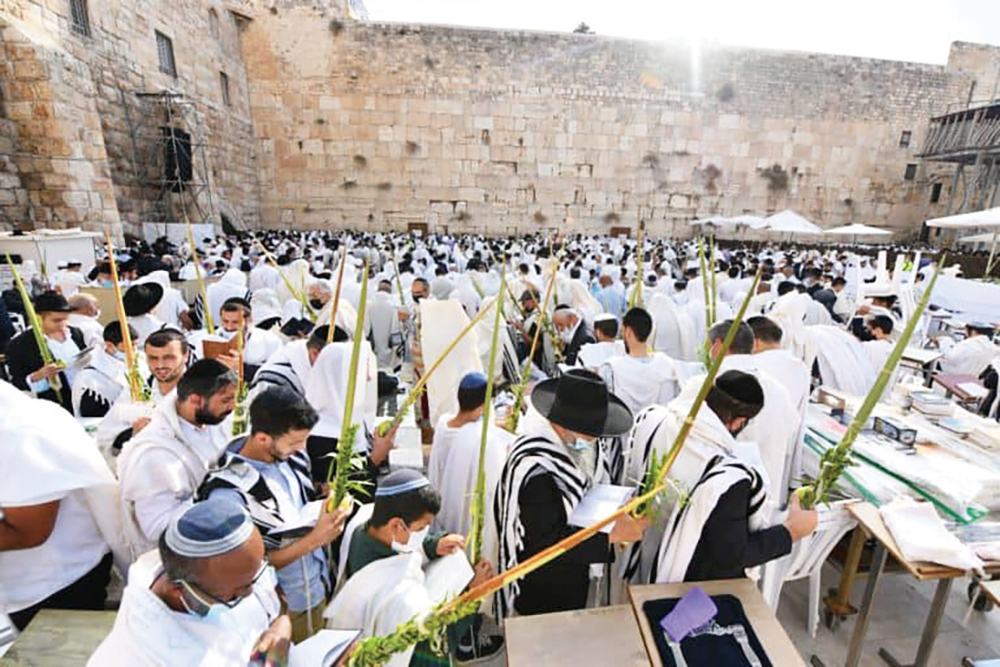
The “shidduch crisis” is a difficult one to tackle. When asked what prompted the Orthodox Union to act on the issue now as it is certainly not novel, Executive Vice President Rabbi Moshe Hauer explained that the OU’s Center for Communal Research (CCR) was founded in 2018 and “[o]ne of its goals was to gather data on important communal concerns that can then inform communal programs and reactions. The shidduch issue is top-of-mind for many in the community and therefore it was one of the first topics the center chose to focus on.”
As previously reported in The Jewish Link, CCR recently released a study entitled “The Challenges of Singlehood Among American Orthodox Jews” which found, among other things, that “[m]any Orthodox American single men and women feel alienated from the broader Jewish community, which may treat them as inferior because of their marital status.” It is with respect to this sentiment that Rabbi Shlomo Goldberger, Shidduch Center of Baltimore’s executive director, coined the phrase “crisis of experience.”
According to Rabbi Goldberger, people mean different things when they talk about the shidduch crisis: 1) the “crisis of experience,” referenced above; or 2) the “crisis of process,” essentially referencing the dating system.
For further details concerning the “crisis of experience,” see the article in the fall 5784/2023 edition of Jewish Action, the magazine of the Orthodox Union, entitled “Singlehood in the Community: Are we Missing the Mark?” It should be noted that a more extensive study is being worked on relating to the “crisis of process.”
But just to give a sense of what the article (and underlying study) convey, some single men and women feel that they don’t have a sense of belonging in their communities, that they are lonely, that the way they are spoken to (e.g., referring to single women as “girls,” and offering unsolicited advice) is unkind, that they are mistreated by matchmakers, and that they are not respected in their shuls in the same way that they would be if they were married.
My Thoughts
I applaud the OU’s initiative, geared towards elevating communal support of single men and women. People are struggling, and the OU is trying to give guidance to the masses as to how to be sensitive towards the singles population.
One particularly amazing initiative which I have seen being championed by the OU (and other entities) is to remind people to invite single men and women for Yom Tov meals, and of course the same principle applies to Shabbat meals. I don’t know if you can quite feel the impact of that statement unless you’ve had to figure out more times than you can count how to spend a Yom Tov or Shabbat meal.
I feel fortunate, though, that not all of the study’s findings, such as feeling a lack of belonging, resonate with me. I’m sure that one of the reasons they don’t is because I feel valued by my shul, The Jewish Center on the Upper West Side of Manhattan, where single people have served as president, vice president, officers of the board and members of shul committees. “There has to be a way to make sure everyone has a voice, and there’s an opportunity for that voice to be heard. It doesn’t matter if you’re 60 or in your 20s, married or single, or have kids or don’t have kids,” stated Rabbi Dr. Yosie Levine in the OU article.
I recognize that my experience (while despite the above, certainly is not easy in other respects), is not everyone’s. In fact, the singles’ demographic is as nuanced as the day is long. In this regard, allow me to offer just a couple of personal observations.
It’s always good to literally see your own circumstances reflected. I attended the September 18 livestream of the New York OU panel discussion on this initiative. Perhaps in future public dialogues on the issue, we can include single individuals of different genders, ages, and levels of religious observance.
Next is the age of the single men and women from whom data was obtained for the study. According to the published documents and information I received from the OU: With respect to the 2,369 single men and women who were survey respondents, 44% were between the ages of 25-34. The mean age of survey respondents was 32 for women and 35 for men. The youngest surveyed was 18. At the higher end of the age brackets, 13% of the women who responded to the survey were over 45, and 21% of men were over 45.
There were also qualitative interviews conducted of 41 unmarried single men and women. The age range of those individuals was approximately 24-42.
Many older singles with whom I’ve spoken don’t feel adequately reflected in these statistics. Let’s make sure that single men and women of all ages feel included in this initiative.
But constructive suggestions aside, it is apparent that a tremendous amount of work has been put into this initiative. There is also, however, much work ahead.
As explained by Rabbi Hauer: “The current study has brought out important points and sensitivities that need to be absorbed in the communal consciousness and shift both attitudes and actions. This will not happen overnight. Our intention is to bring sustained attention—by the OU and by all interested parties in the broader community—to these points and sensitives to achieve positive change.”
Rabbi Hauer, I’m an interested party. Thank you.
Judith Falk is the creator of the Upper West Side Shtetl Facebook group. You can follow her on instagram @upperwestsideshtetl. She is a lawyer by day and a former legal reporter. And she’s single.












